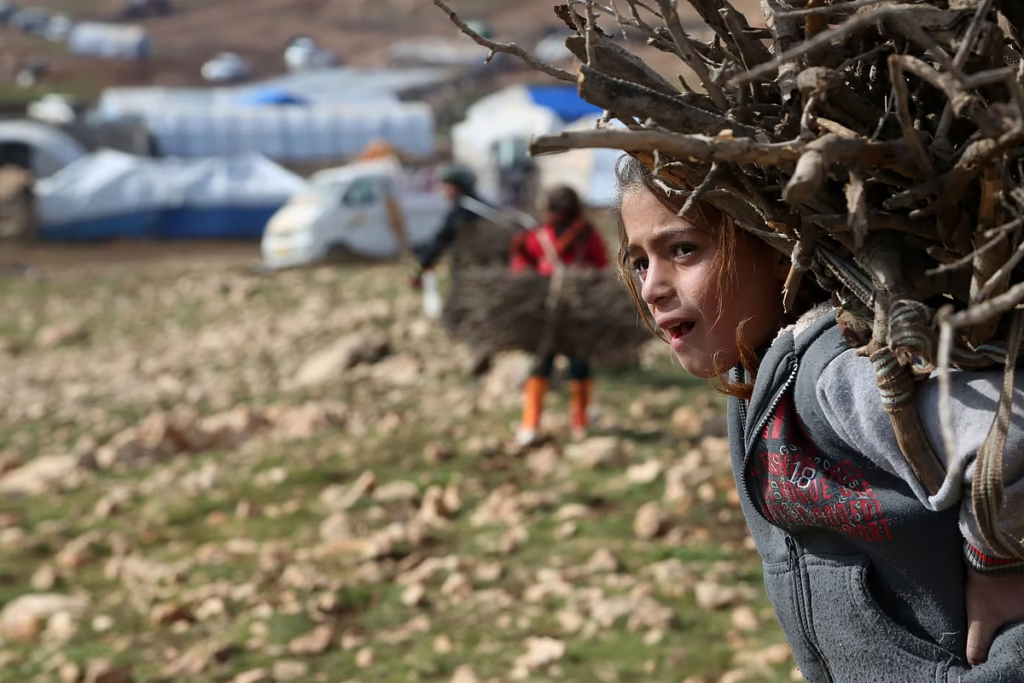In a groundbreaking legal decision, a Swedish court has sentenced a woman to 12 years in prison for her role in holding Yazidi women as slaves in Syria. This historic ruling marks a significant step toward justice for the Yazidi people, who have faced unimaginable atrocities at the hands of ISIS militants in recent years.
A Dark Chapter of Human Trafficking
The case centers around a Swedish woman who, while residing in Syria, was found to have been involved in the trafficking and enslavement of Yazidi women. The Yazidis, a religious minority from northern Iraq, became a target of ISIS during the group’s brutal campaign of genocide in 2014. Thousands of Yazidis were captured, with many women and girls subjected to sexual slavery, forced labor, and other forms of abuse.
The defendant, whose identity has not been publicly disclosed, was arrested upon her return to Sweden and charged with war crimes and human trafficking. Evidence presented during the trial revealed that she had helped ISIS militants enslave Yazidi women, a horrifying act that left deep scars on survivors and their families.

This conviction is part of a broader effort by international authorities to hold individuals accountable for their role in the ISIS-led genocide of the Yazidi people. The Swedish court’s decision to sentence the woman to 12 years in prison sends a strong message that those who engage in such heinous acts will face justice, regardless of their nationality or the country where the crimes were committed.

The Yazidi Genocide and Global Efforts for Justice
The sentencing brings renewed attention to the Yazidi genocide, which ISIS began in 2014 when it overran the Yazidi homeland in Sinjar, Iraq. Thousands of Yazidis were massacred, and many women were captured and subjected to sexual violence, forced marriages, and slavery. The United Nations has recognized the actions of ISIS against the Yazidis as genocide, and efforts to bring perpetrators to justice have been underway ever since.

Over the years, several international bodies have taken action to prosecute individuals responsible for the atrocities committed against the Yazidis. The Iraqi government, along with international courts, has made progress in prosecuting ISIS members for war crimes, crimes against humanity, and genocide. However, many survivors of the genocide continue to seek justice, and international courts and local authorities are increasingly focused on ensuring accountability.
This particular case is significant because it highlights the global nature of the fight for justice. The Swedish woman, who was involved in the trafficking of Yazidi women, was captured in Sweden, showing that individuals who commit atrocities abroad are not immune from legal action in their home countries. The case also brings to light the role that foreign nationals played in enabling the ISIS terrorist group to carry out its crimes, underscoring the importance of international cooperation in tackling such issues.
The Legal Implications
Sweden’s legal system has long been at the forefront of addressing war crimes and human rights violations, and this case is a testament to the country’s commitment to ensuring justice for victims of conflict. The decision to prosecute a foreign national for crimes committed in Syria demonstrates the reach of international law and the growing trend of holding individuals accountable for their actions, even when they occur in conflict zones far from the perpetrators’ home countries.
While the 12-year prison sentence is seen as a significant victory for human rights advocates, it also raises important questions about the limits of national and international justice systems in addressing complex crimes like human trafficking and war crimes. The Swedish legal system’s ability to effectively investigate and prosecute such crimes in a way that is fair, transparent, and thorough will likely influence how similar cases are handled in the future.
A Step Toward Healing for Survivors
For many Yazidi survivors, the legal victory represents a small but crucial step toward healing. The crimes committed against the Yazidi people have left a legacy of trauma and loss, and while no amount of legal action can undo the suffering, holding perpetrators accountable can offer survivors a sense of justice and dignity.
The sentence handed down to the Swedish woman is a reminder of the ongoing struggle for justice for the Yazidis and other victims of ISIS’s atrocities. Many Yazidis have expressed hope that this case will encourage further legal action against those responsible for the genocide, both within Syria and beyond. As survivors continue to rebuild their lives and communities, the pursuit of justice remains an essential part of their healing journey.
Looking Ahead: Global Accountability for War Crimes
The sentencing of the Swedish woman also serves as a reminder of the ongoing need for global accountability for war crimes and human trafficking. While this case is a landmark decision in Sweden, the broader international community must continue to work together to ensure that perpetrators of atrocities are brought to justice.
The Yazidi genocide is just one example of the many conflicts and crises around the world that have seen similar crimes committed. The international community, through efforts like the International Criminal Court (ICC) and national legal systems, must remain vigilant in their pursuit of justice for all victims of war crimes, sexual violence, and human trafficking.
As the world grapples with the lasting effects of conflicts in Syria, Iraq, and beyond, the case of the Swedish woman who trafficked Yazidi slaves stands as a beacon of hope for accountability and justice in a world that too often allows such crimes to go unpunished. The survivors and their families deserve to see those responsible for their suffering held accountable, and the conviction of this individual is an important step in that direction.
Do follow Uae stories for more Updates
Pakistan Deputy Prime Minister Invites UAE Firms to Invest in Telecom Sector












